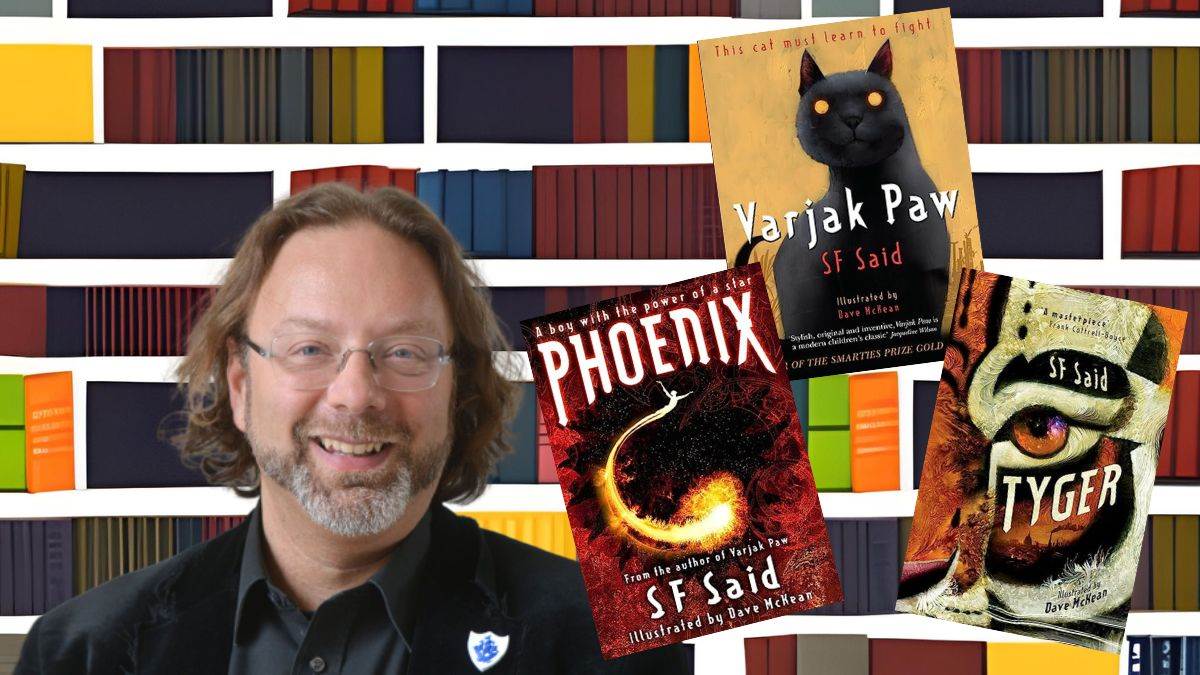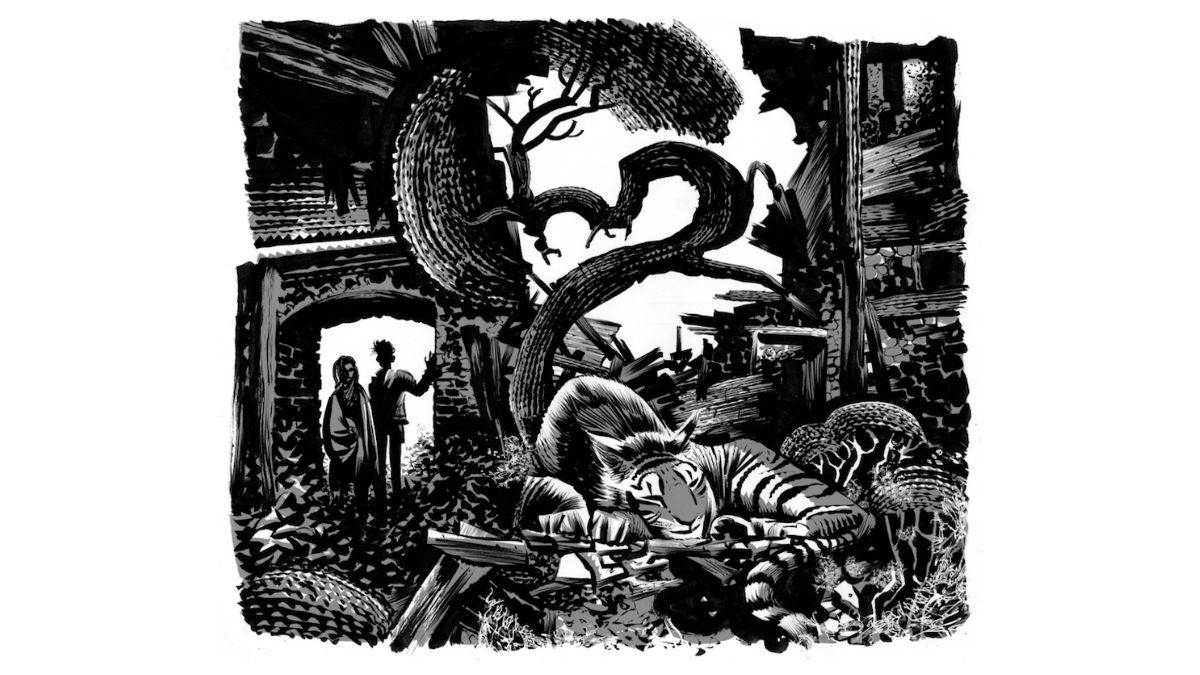Inclusion – the importance of seeing yourself in a book
Published on: 09 July 2023
Our Writer-in-Residence SF Said shares his feelings on the power of feeling included in a book.

Reading for pleasure has the biggest positive impact of any factor on children’s life chances. It counts for even more than socio-economic background. The research is clear: there really is nothing more important in education.
So we have to do everything possible to enable every child to read for pleasure, and to find in books a space that will make them feel included, inspired, and empowered to do all the things they dream of doing.
Inclusion is particularly important. No child should ever feel excluded by books. No child should feel that they don’t belong in books, because they never see themselves reflected in their pages, and so reach the conclusion that books are for other people, not for them.
When I was a child, there were no children’s books that dealt with my kind of identity. My family is originally from the Middle East and the wider Muslim world. I have Iraqi, Egyptian, Kurdish and Circassian ancestors. I was born in Lebanon, and lived briefly in Jordan, before I came to live in London with my mum when I was 2 years old.
Back then, in the 1970s, origins like mine were unusual in Britain. Negotiations around identity, difference and belonging were daily facts of my life, and even my name was an issue. It’s a very ordinary Arabic name, if you speak Arabic, but it’s totally unpronounceable if you don’t, and I know this because it gave me so much trouble when I was growing up that I ended up using initials just to make life easier for everyone.
My favourite book as a child – still my favourite book today – was Watership Down by Richard Adams. I loved everything about the adventures of those rabbits, but perhaps the thing I loved the most was the fact that the great hero of their mythology was called El-Ahrairah. This looked a lot like Arabic to me, and I can’t tell you how deep a chord it struck for me. It was the closest I ever came as a child to seeing myself reflected in a book. It felt incredibly empowering; even life-changing.
When I was starting out as a writer, in the 1990s, there still weren’t many children’s books about people like me. In fact, I can't think of any. So I didn’t think I could interest publishers in a story about a Muslim boy of Middle Eastern background. Instead, in my first book, Varjak Paw, I wrote a story about a Mesopotamian Blue cat. And in Phoenix, I wrote about aliens in outer space.
But by the time I was writing Tyger, the world of children’s publishing had begun to change. The CLPE’s Reflecting Realities research had shown just how little representation there was in children’s books of characters from minority backgrounds, at a time when nearly a third of school-age children were from such backgrounds. As I saw publishers begin to seek out more diverse stories, I felt we had reached a moment when I could write about my background more directly, and explore the themes of identity, difference and belonging more deeply.
And so Tyger is set in London, in the present day, but in a strange alternate world in which the British Empire has never ended. Slavery has never been abolished. All foreigners have to live in a crowded ghetto. And almost all animals have been hunted to extinction.
Yet it’s in this world that a young Muslim boy called Adam finds a mysterious, mythical, magical animal: the tyger. And as Adam brings his friend Zadie from the ghetto to meet the tyger too, the tyger shows them that they have powers inside them. They have the power to do all the things they dream of doing; perhaps even to change their world.

Credit: Dave McKean 2022
One of my motivations for writing Tyger was to write an exciting children’s book adventure with main characters who happen to be Muslim, as Adam and Zadie are. I was trying to write a book that I wish had existed when I was a child. It would have meant so much to me to see such a thing.
But I also filled the book with characters of all sorts of identities and beliefs, to make space for all readers to imagine themselves in the story; to feel included in it, as well as to enter other points of view. My highest hope is that children of all backgrounds might read Tyger and come away feeling that they too have the power to do all the things they dream of doing – and to change the world.
It’s been hugely inspiring to witness the new wave of children’s literature that has emerged over the past few years, with much more inclusive books being published, and many more identities, perspectives and experiences being represented. It’s vital that publishers continue to publish and publicise these books. And it’s vital that they come to the attention of teachers, librarians, booksellers and all the other adults who help kids to find books.
I really do believe there is a book for every child out there now. If we can help all children to find the books that will engage and inspire them, I feel certain that each and every one of them can read for pleasure, and gain all the lifelong benefits that come from it. And there is no reason at all why any child should feel excluded or be left behind any more.
Topics: Writer in Residence, Features, S.F. Said





